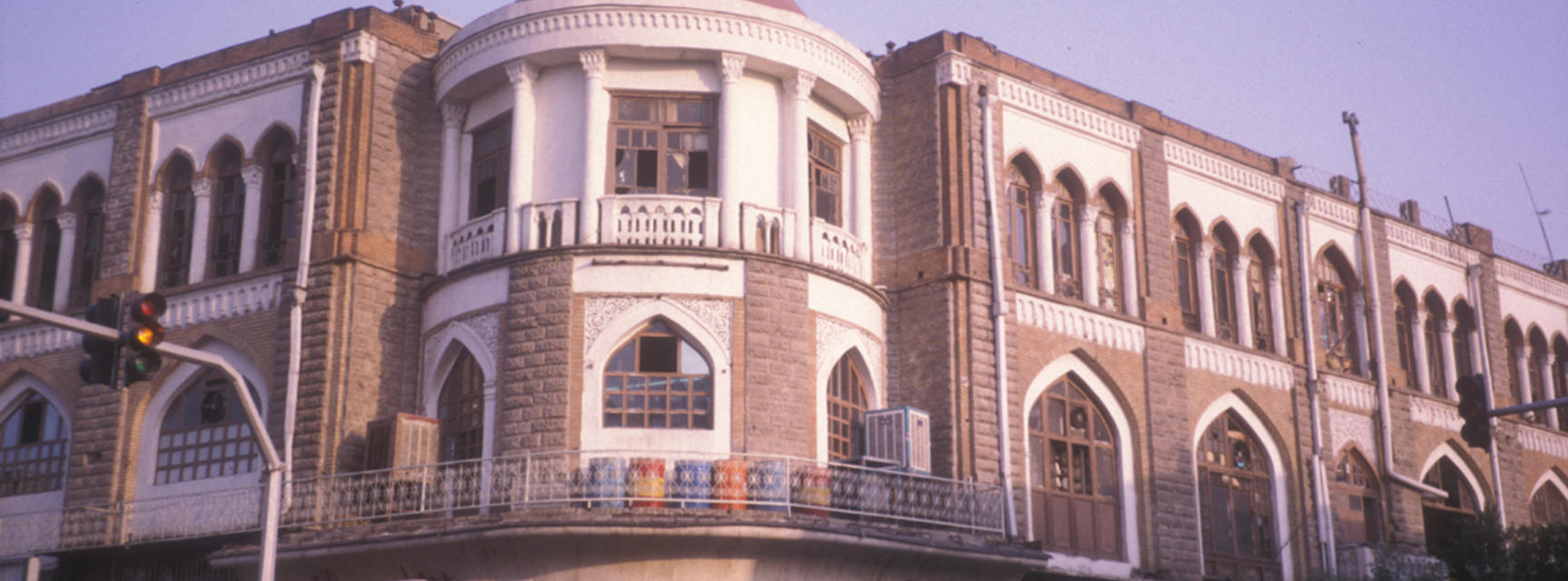In Search of Urban Geopolitics: Deep Mapping Tehran's Lalehzar District, 1880-1960
Once deemed the Champs-Élysées of Tehran, Lalehzar district is often cherished as the birthplace of Iranian urban modernity and cosmopolitan cultural production. What's more, its close proximity to major governmental institutions and foreign embassies made the street a strategic zone where urbanity intersected with geopolitics. Between 1880 and 1960, this area was the frontline of competing diplomatic and soft-power foreign ventures as well as national and international conflicts at the ground level. This session will discuss the strategies and challenges of building a new collection based on an extensive multi-dimensional and international archival search on various aspects of Lalehzar.
Furthermore, it will showcase the ways in which this new multi-layered archive facilitates a close socio-historical understanding of World War II as it unfolded in this district, while unveiling a major diplomatic discord between Iran and (among) the respective Allied governments.
Register for the whole series Rethinking History: Returning to Archives and Documents, including this event, at this link.
About the speaker
Ida Meftahi is an assistant professor of Middle Eastern history at Boise State University, where she teaches a range of interdisciplinary courses on Middle Eastern and Iranian history and culture. She holds a PhD from the University of Toronto's Department of Near and Middle Eastern Civilizations. She has been a postdoctoral fellow at the Institute for the Arts and Humanities at Pennsylvania State University (2013-14), as well as a visiting assistant professor of contemporary Iranian culture and society at the University of Maryland (2014-2019). Meftahi specializes in the history of modern Iran, emphasizing the intersections of politics, gender, and performance (in its broader Goffmanian sense). She has presented and published her work in a number of academic forums in different areas of the humanities and social sciences in North America, Europe, and the Middle East. Her first book, Gender and Dance in Modern Iran: Biopolitics on Stage (2016) received the Association for Iranian Studies' prestigious Latifeh Yarshater Award for its original contribution to the field of Iranian women's studies. With a unique approach to embodiment and vigorous historiography of understudied realms of urban popular culture, Meftahi's work has emerged as a frequent reference for recent academic inquiries into urban Iranian cultural history, ethnomusicology, and gender studies as well as cinema, theatre, and dance studies. Building on over fifteen years of extensive international archival and ethnographic research in Iran and around the world, Meftahi is currently working on a second book project, tentatively titled "Tulip Grove, Tehran:
Urban Geopolitics, Gender, and Performative Culture in Modern Iran." The book features a detailed historical-anthropological investigation of Tehran's historic Lalehzar Street and its vicinity between 1880 and 1960. It takes the lens of performance studies to the streets and venues of this crucial zone of cultural production and diplomacy. "Tulip Grove, Tehran" allows for a closer exploration of the interrelations of cultural production and spectatorship, religious and political practices, as well as (face-to-face) social interactions in light of major historical local and international turning points.


